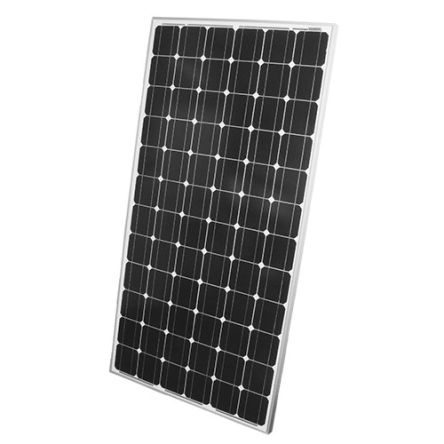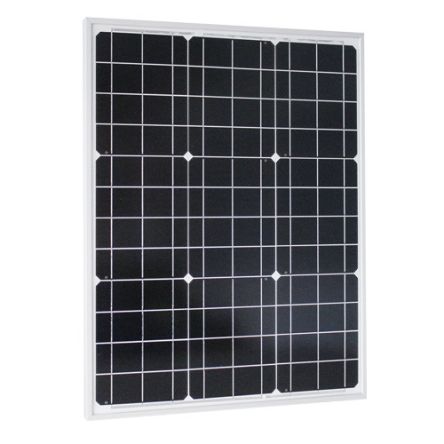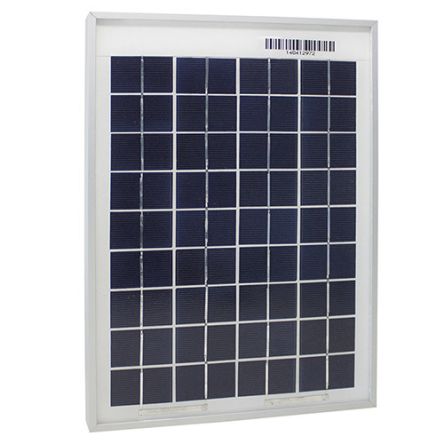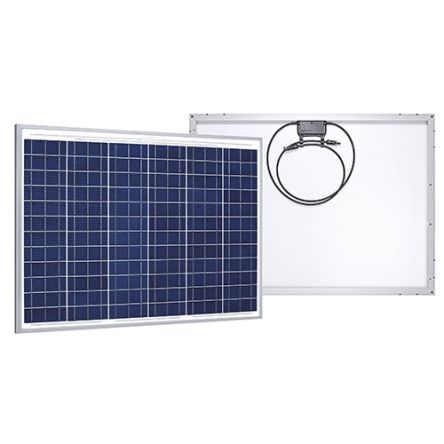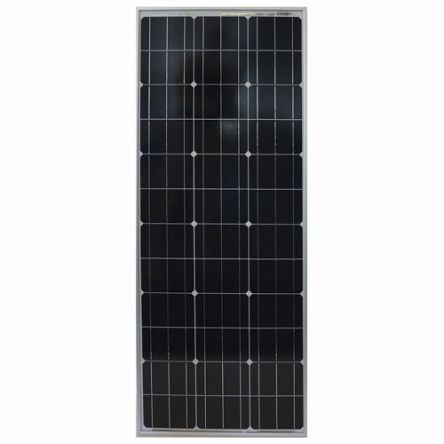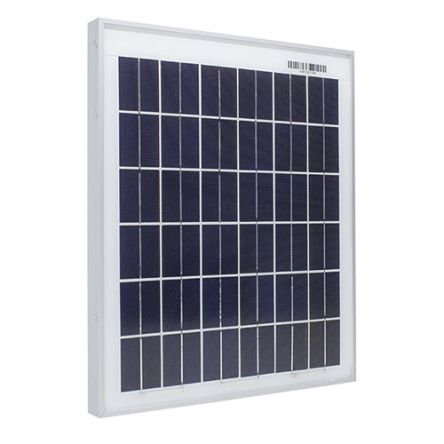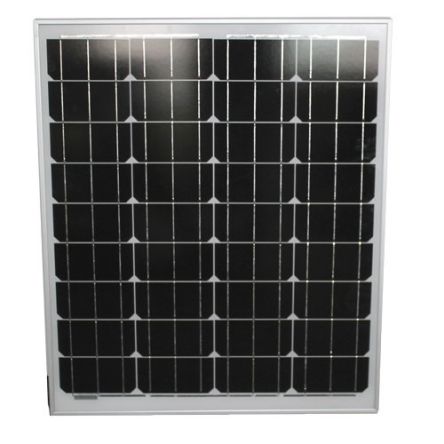- Automation & Control Gear
- Cables & Wires
- Enclosures & Server Racks
- Fuses & Circuit Breakers
- HVAC, Fans & Thermal Management
- Lighting
- Relays & Signal Conditioning
- Switches
- Batteries & Chargers
- Connectors
- Displays & Optoelectronics
- ESD Control, Cleanroom & PCB Prototyping
- Passive Components
- Power Supplies & Transformers
- Raspberry Pi, Arduino, ROCK, STEM Education & Development Tools
- Semiconductors
Phaesun Solar Panels
Harness the power of the sun and reduce your reliance on traditional energy sources with solar panels. Renewable energy is a key solution for generating electricity in the Philippines with zero carbon emissions. By tapping into solar energy, you can lower your carbon footprint, reduce your electricity bills, and contribute to a greener future.
At RS Philippines, you’ll find a wide range of high-quality solar panels at competitive prices. And as a leading supplier, we only offer solar energy panels from trusted brands like RS PRO, Panasonic, Sanyo, and PV Logic. With a quick and easy installation process, you can transform your rooftop space into a clean energy source, harnessing the abundant solar power available in the Philippines.
What Are Solar Panels?
Solar panels, also known as photovoltaic (PV) panels, are devices that convert sunlight into electricity. They consist of interconnected solar cells, typically made of silicon, that exhibit the photovoltaic effect, generating an electrical current when exposed to sunlight. What’s more, they come in various sizes to accommodate different energy needs and applications:
- Small Solar Panels: These compact solar panels are ideal for personal or small-scale applications, such as powering outdoor lights, charging portable electronics, or providing electricity for RVs and boats.
- Medium-Sized Solar Panels: These solar panels are commonly used in residential settings to power homes and small businesses. Additionally, they offer a balance of power output and affordability, making them a popular choice for rooftop solar installations.
- Large Solar Panels: Large solar panels are designed for high-power applications, such as commercial buildings, industrial sites, and utility-scale solar farms. At the same time, they offer significant energy generation capabilities.
How Solar Panels Work
Solar power panels convert sunlight into electricity through a series of steps involving these specialized components:
- Solar Cells: Solar cells are the fundamental building blocks of solar panels. And as mentioned, these cells exhibit the photovoltaic effect, meaning they generate an electric current when exposed to sunlight. When sunlight strikes the solar cell, it excites electrons within the silicon, creating a flow of electricity. The more intense the sunlight, the greater the electrical current produced.
- Inverters: Solar cells produce direct current (DC) electricity, but most solar power systems for homes and businesses in the Philippines utilize alternating current (AC) electricity. This is where solar inverters come into play. Inverters convert the DC electricity generated by the solar panels into AC electricity, making it compatible with standard household appliances and electrical systems.
- Copper Solar Cables: Specialized copper solar cables are also used to efficiently transfer the electricity generated by the solar panels. These cables connect the individual solar modules within a panel and also connect the panels to the inverter and the rest of the electrical system. It’s also worth noting that copper solar cables are designed to withstand the outdoor elements and ensure efficient transmission of solar power.
Types of Solar Panels and Key Features
Suppliers in the Philippines offer various types of solar power panels, including:
- Monocrystalline Solar Panels: Monocrystalline solar panels are known for their high efficiency and sleek black appearance. They are made from single-crystal silicon, resulting in higher energy conversion rates compared to other types. While they tend to be more expensive, their superior efficiency and long-term durability make them a popular choice for residential and commercial solar installations.
- Polycrystalline Solar Panels: Polycrystalline solar panels are a more cost-effective option compared to monocrystalline panels. They are made from multiple silicon crystals, resulting in a slightly lower efficiency but a more affordable price point. If you’re seeking a balance between performance and affordability, consider getting polycrystalline solar panels.
- Thin-Film Solar Panels: Thin-film solar panels are lightweight and flexible, making them suitable for specialized applications where traditional rigid panels may not be suitable. They are made by depositing thin layers of photovoltaic material onto a substrate, such as glass or plastic. While their efficiency is generally lower than that of crystalline silicon panels, their flexibility and lightweight design make them attractive for certain applications.
Solar panels also come in various wattages, allowing you to select the right power output for your needs. For example, higher-wattage panels produce more power, making them ideal for larger energy demands.
You’ll also find a range of efficiency ratings which indicate how effectively the panels convert sunlight into electricity. Higher-efficiency panels maximize energy production from the available sunlight. Additionally, solar panels come in various size options, allowing you to choose the right configuration for your rooftop or ground-mounted installation.
Benefits of Installing Solar Panels
When you invest in renewable energy solutions and buy solar panels in the Philippines, you can enjoy the following benefits:
Environmental Benefits
Solar panels are a clean and renewable energy source, producing no harmful greenhouse gas emissions during operation. By generating electricity from sunlight, they reduce reliance on fossil fuels, contributing to cleaner air and a healthier environment in the Philippines.
Economic Benefits
Installing solar panels can lead to significant savings on energy bills. By generating your own electricity, you become unaffected by the grid’s fluctuating prices. In some cases, you may even be able to send excess electricity back to the grid, which will be credited to your bill.
Energy Independence
Solar panels provide a degree of energy independence, allowing you to generate your own power and reduce your reliance on external energy sources. This can be particularly beneficial in areas with unreliable grid infrastructure or during times of power outages.
Typical Applications of Solar Panels
Solar panels are versatile energy solutions used across a wide range of applications in the Philippines, including:
Residential Use
Solar power panels are increasingly common in residential settings throughout the Philippines. Homeowners who invest in renewable energy and buy solar panels are able to reduce their electricity bills, lower their carbon footprint, and contribute to a more sustainable future.
Commercial and Industrial Use
Solar panels are also gaining popularity in commercial and industrial settings. Businesses are installing rooftop solar power systems to offset their energy costs and demonstrate their commitment to environmental sustainability. At the same time, large-scale solar farms are being developed to generate clean energy and feed it into the electricity grid, contributing to a cleaner energy mix for the Philippines.
Remote and Specialized Uses
Solar panels offer reliable power solutions in remote or specialized applications where traditional grid access may be limited or unavailable.
- Boats: Solar panels provide a sustainable and reliable energy source for boats, enabling off-grid power generation for lighting, navigation, and other onboard systems.
- Roadside Emergency Telephones: In remote locations, solar panels power emergency telephones, ensuring reliable communication even when grid power supply is unavailable.
- Electric Cars: Solar panels are being integrated into electric vehicle charging stations, providing a clean and sustainable way to power electric car charging.
How Much Energy Can Solar Panels Generate?
The energy output of solar panels in the Philippines can vary depending on several factors, but here's a general overview of what you can expect:
- Residential Systems: A typical residential solar panel system in the Philippines can generate anywhere from 5 kWh to 10 kWh of electricity per day. This is enough to power most household appliances and significantly reduce your reliance on the grid.
- Commercial Systems: Commercial solar power systems can generate much higher amounts of electricity, often reaching several hundred kilowatts, depending on the size and number of solar panels installed.
However, note that the actual energy output is influenced by several factors. For example, the amount of sunlight exposure within the geographical location in the Philippines determines energy production. Panel efficiency also plays a role, with higher-efficiency panels generating more energy from the same amount of sunlight. At the same time, the orientation and tilt of the solar panels impact their sunlight exposure throughout the day.
Installation Options for Solar Panels
When installing solar panels in the Philippines, you have several options to choose from, depending on your available space, renewable energy needs, and budget. Consider the following:
Rooftop Installations
Rooftop installations are a popular choice for homes and businesses, as they use existing roof space to generate clean energy. Solar panel suppliers in the Philippines offer various mounting systems to securely attach solar panels to different roof types, maximizing energy production while maintaining the aesthetic appeal of the building.
Ground Mounting
Ground-mounted solar panel systems are ideal for large-scale installations or in areas where rooftop space is limited. These systems are typically installed on open land or fields, allowing for greater flexibility in panel placement and orientation to maximize sunlight exposure.
Solar Tracking Systems
Solar tracking systems are designed to follow the sun's path throughout the day, ensuring that the solar panels receive maximum sunlight exposure. These systems are often used in large solar farms or in areas with limited direct sunlight to optimize energy generation. However, they are generally more expensive than fixed-tilt systems.
Purchase Solar Panels from RS Philippines
When you’re ready to embrace the benefits of renewable energy, buy your solar panels from RS Philippines. We offer a wide selection of solar panels to meet your needs, whether you're looking to power your home, business, or specialized applications.
Plus, our range includes solar panels in various dimensions, from small solar panels for individual use to medium-sized and large solar panels for commercial installations. You can also purchase solar panels individually or in packs, providing flexibility for your specific project.
Beyond solar panels, RS Philippines is your one-stop shop for renewable energy systems. Whether you need solar inverters, wind turbines, or solar charge controllers, we can help you create a comprehensive, sustainable energy system.
Explore our full range of solar panels and start your journey towards a sustainable future.
8 Products showing for Phaesun Solar Panels
Popular Searches
Related links
- Phaesun 80W Photovoltaic Solar Panel
- Seeit 10W Monocrystalline Photovoltaic Solar Panel
- Seeit 50W Monocrystalline Photovoltaic Solar Panel
- Phaesun 100W Photovoltaic Solar Panel
- Phaesun 10W Photovoltaic Solar Panel
- Seeit 20W Monocrystalline Photovoltaic Solar Panel
- Seeit 5W Monocrystalline Photovoltaic Solar Panel
- Solar Technology 80W Kit Photovoltaic Solar Panel
